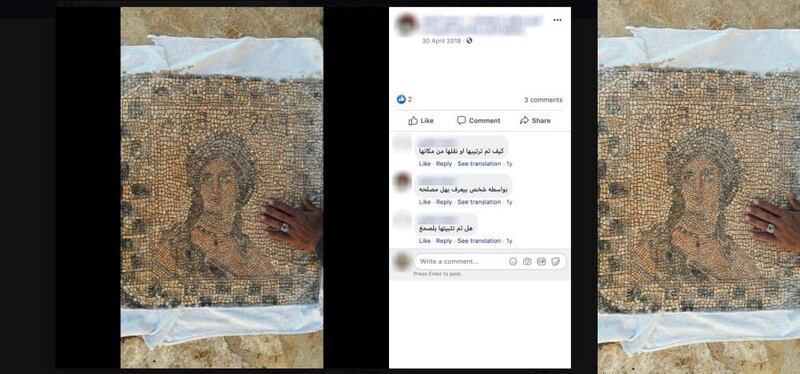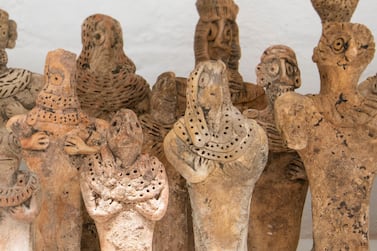After criticism from archaeologists and academics about the trade of looted items on its platform, Facebook has banned the sale of historical artefacts on its site.
The social media network updated its Community Standards this week, prohibiting “content that attempts to buy, sell, trade, donate, gift or solicit historical artefacts”.
The policy extends to Instagram, which is owned by Facebook.
Last year, US organisation Antiquities Trafficking and Heritage Anthropology Research Project (Athar) published a report that details how the social media site has become an online market for illicit antiquities, most of which have been pillaged from conflict zones in the Middle East, specifically Iraq and Syria.
The report, titled Facebook's Black Market in Antiquities, states: "Facebook offers a veritable digital toolbox for traffickers to utilise, including photo and video uploads, live streaming, disappearing 'Stories', payment mechanisms, and encrypted messaging. Facebook is the perfect platform for a one-stop-shop black market."
The Athar project found at least 95 Facebook groups, with a combined membership of nearly two million users, in which looters would advertise items and share locations of archaeological sites to conduct their operations. Individuals would also show items in situ and offer to loot them for interested buyers.
This “loot-to-order” system was the subject of an investigation by the BBC in 2019, which documented how the objects would be transported into Turkey, where the sales would be completed.
In April this year, Athar noted a rise in the trade of illicit antiquities amid lockdowns caused by the coronavirus pandemic. The organisation cited various factors for this rise in activity, including job losses in the tourism industry that may have compelled workers to turn to the illicit trade for income.
In a document released by Facebook on Tuesday, June 23, the company outlined the historical items that would be protected by the ban: ancient scrolls and manuscripts, antiquities such as ancient funerary items, tombstones, coins, engraved seals and mummified body parts, among others.
“We recognise that the sale of historical artefacts can result in harmful behaviour, and we would like to establish clear parameters to distinguish what should and should not be sold or traded on the platform,” wrote Facebook public policy manager Greg Mandel. He also explained that while Facebook’s previous policy had prohibited the sale of stolen historical artefacts, the company has expanded its rules to ban the sale and exchange of all historical artefacts.
Facebook is developing artificial intelligence systems to identify keywords and images linked to illicit trade, though experts such as Amr Al Azm, a professor at Ohio’s Shawnee State University and co-director of Athar, have expressed concern that this may not halt black market activity.
He also criticised Facebook’s policy of removing posts engaging in illegal trade on the platform, preferring instead for the company to create a digital archive that could be used for evidence of trafficking.







